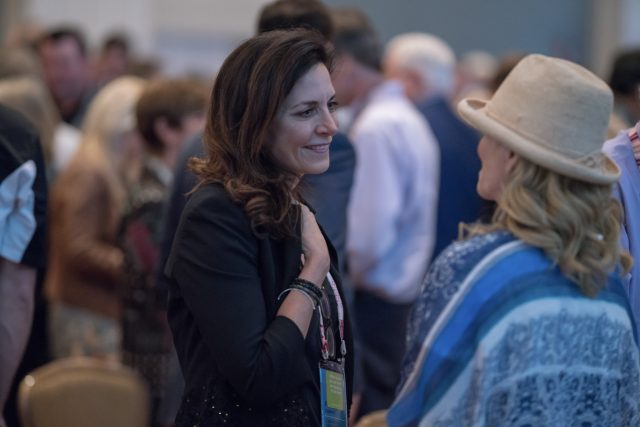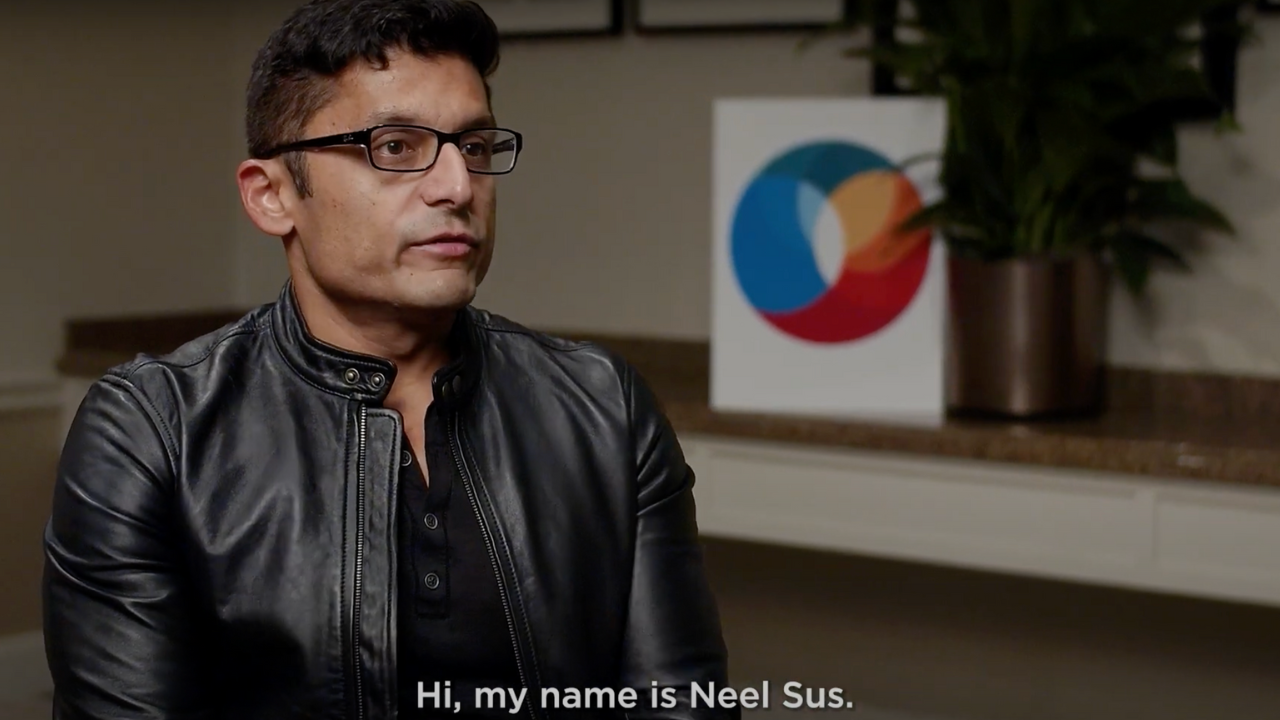The Exxon supervisor called, and he was heated.
“I was responsible for filling secretarial positions in the building, and when I picked up my phone, he started yelling at me,” Cindy Wigglesworth recalled. “Some little moment of grace inside me said, ‘Insert a pause here.’”
Her stomach wrenched with anxiety, Wigglesworth asked the supervisor if she could put him on hold to get rid of another call—a fiction designed to allow her a pause for a few deep breaths.
“I set a higher intention—I was going to shut up, listen, and be hyper present. I wasn’t going to defend,” Wigglesworth recalled. “And that little moment of grace, that inner wisdom—I wasn’t expecting it.”
When she returned to the line 20 seconds later, she dove into active listening by taking notes and repeating back what he said. By the time the call was over, he had completely calmed down and felt Cindy was an ally to solving his problem.
Wigglesworth said it was “a seed moment,” a foreshadowing of a deeper insight she’d later develop after her 20 years with Exxon, as part of something she called spiritual intelligence, or SQ.

Spiritual Intelligence is one of the four key intelligences outlined in Conscious Capitalism, by John Mackey and Raj Sisodia. The Conscious Capitalist leaders describe spiritual intelligence as a moral intelligence that gives people the ability to distinguish right from wrong.
Wigglesworth defines spiritual intelligence as “the ability to behave with compassion and wisdom while maintaining inner and outer peace regardless of the circumstance.” Wigglesworth said she initially wanted to define SQ as the ability to behave with love.
Love is a sloppy word, so I chose not to use it, she said. We’ll say, ‘I love my children,’ and ‘I love pizza.’ I wanted something that was more understandable, more concrete.
In Eastern traditions, love is described as a bird with two wings; one wing is compassion and the other is wisdom, and if either is broken the bird can’t fly.
“That rang in my heart and soul and gut,” she said. “I must have compassion, which is the most elevated state of the heart, and I must have wisdom, which is the most elevated state of the mind. I bring them together to have loving action.”
One of the key benefits of SQ is that it brings about a perspective shift because people who develop it reduce their dependence on ego.
“We tend to be trapped inside the perspective of our ego, and our ego’s perspective is fearful and worried about how we look and what other people think of us,” Wigglesworth said. “It’s hard to take a bigger perspective when I’m caught in my ego—including the perspective of the long-term benefit of the company.”
Wigglesworth said she came up with the term spiritual intelligence after reading Daniel Goleman’s Emotional Intelligence and then finding that there had yet to be any comparable work in the spiritual intelligence field.
She set out to demonstrate it was a legitimate trait, developing an assessment and writing a book called SQ21: The Twenty-One Skills of Spiritual Intelligence. She is now the president and founder of Deep Change Inc., a company that helps individuals and organizations develop and access their multiple intelligences.
“I was convinced there was something to be learned from exemplary leaders like Jesus, the Dalai Lama, the Buddha and Mother Teresa—all these people that groups list when I asked them who they consider spiritual leaders,” she said. “When I ask them why they admire these people, they list things like compassion, wisdom, peacefulness, nonviolence, high integrity, love, kindness, forgiveness.”
When she teaches SQ to business leaders, she asks executives whether they don’t want any of those characteristics in the leadership of their companies.
“The only pushback I ever get is on compassion,” she said. “The concern about compassion is that it’s associated with being a wimp and not making tough decisions.”
But that’s when the discussion of compassion and wisdom working together helps executives consider what it takes to soar. “When I talk about how compassion has the ability to be fierce, then people feel more comfortable with the term,” she said.
In helping leaders develop SQ, it’s also important not to conflate “spiritual” with “religious.”
Spiritual intelligence is not about converting anyone to any system of belief—it’s about recognizing the innate human need to be connected with the people and world around us. Some religions make room for that idea, and some don’t—but your personal religious beliefs don’t define your level of SQ.
You can be an atheist and develop spiritual intelligence.
Developing a deeper awareness around SQ is essential for any leader looking to develop the whole package of Conscious Leadership.
“IQ alone can make someone really smart—and really obnoxious, prone to offending co-workers and clients,” she said. “EQ [emotional intelligence] is a fantastic set of skills that allow someone to have great interpersonal relationships, to notice social cues and to respond appropriately to situations. But if someone is all EQ and no IQ, they might be well liked but they won’t necessarily be successful because they need the technical skills and critical thinking to get their job done.”
Someone with a blend of IQ, EQ and SQ will be better positioned to lead consciously, as Wigglesworth learned the hard way. After earning bachelor’s and master’s degrees from Duke University, she joined Exxon’s human resources department. At one staff meeting called to address college recruiting, Wigglesworth wasted no time offering her ideas.
“Here’s what we need to do,” she recalled saying. “I did not give sufficient space to people with 20 years of experience. Instead of hearing what they’d learned, I just wrote them off, as 20-something year olds often do.”
Her first performance reviews noted her intelligence, but suggested she work on her interpersonal skills. She was coming across as arrogant.
One of her first insights was to work on seeing through the eyes of other people. The perspective-shifting was magical and helped her reduce her ego self. As a result, not only was she receiving promotions she’d earlier believed she’d deserved, she realized she was leading and people were choosing to follow.
“If my leadership is coming from a place of deep integrity and alignment with values and vision, people deeply trust me to see their point of view and I can help get phenomenal things done,” Wigglesworth said. “I had some breakthrough leadership moments because of who I had become, and who I had become had everything to do with SQ.”
Read more about Cindy Wigglesworth and her work with Spiritual Intelligence on the Deep Change website. You can find her book SQ21: The 21 Skills of Spiritual Intelligence on Amazon.



